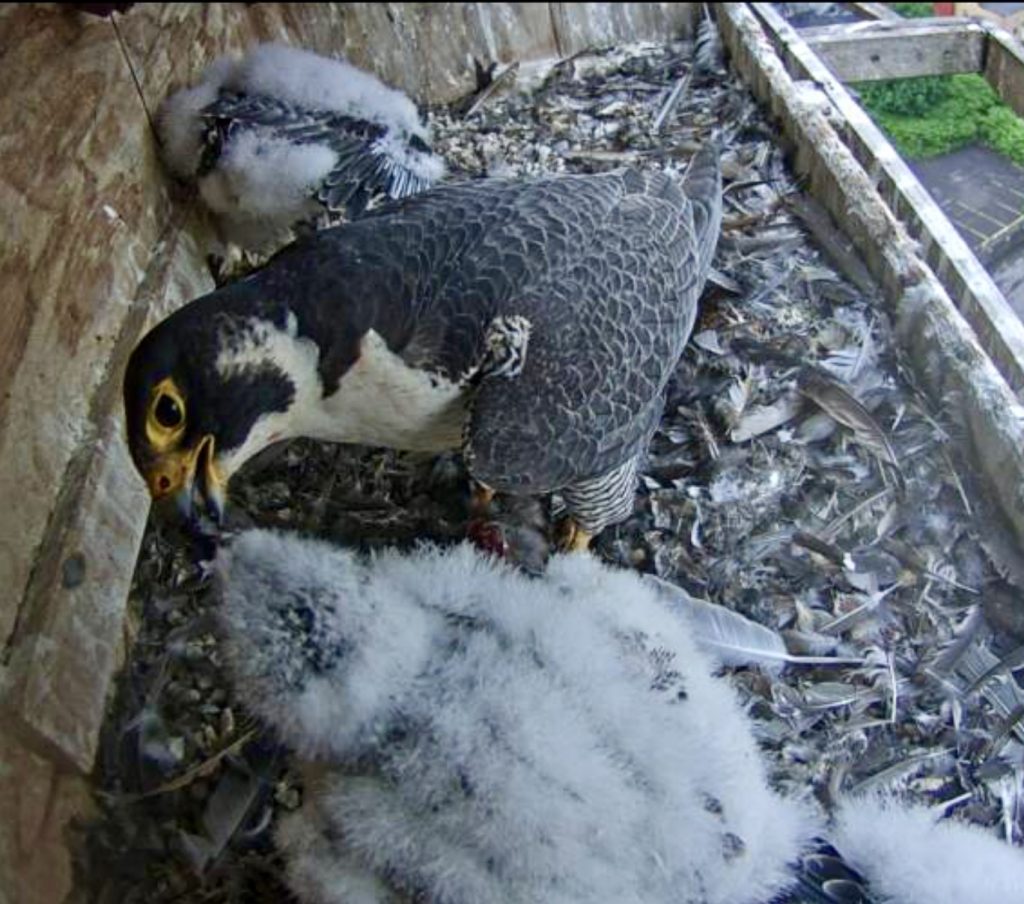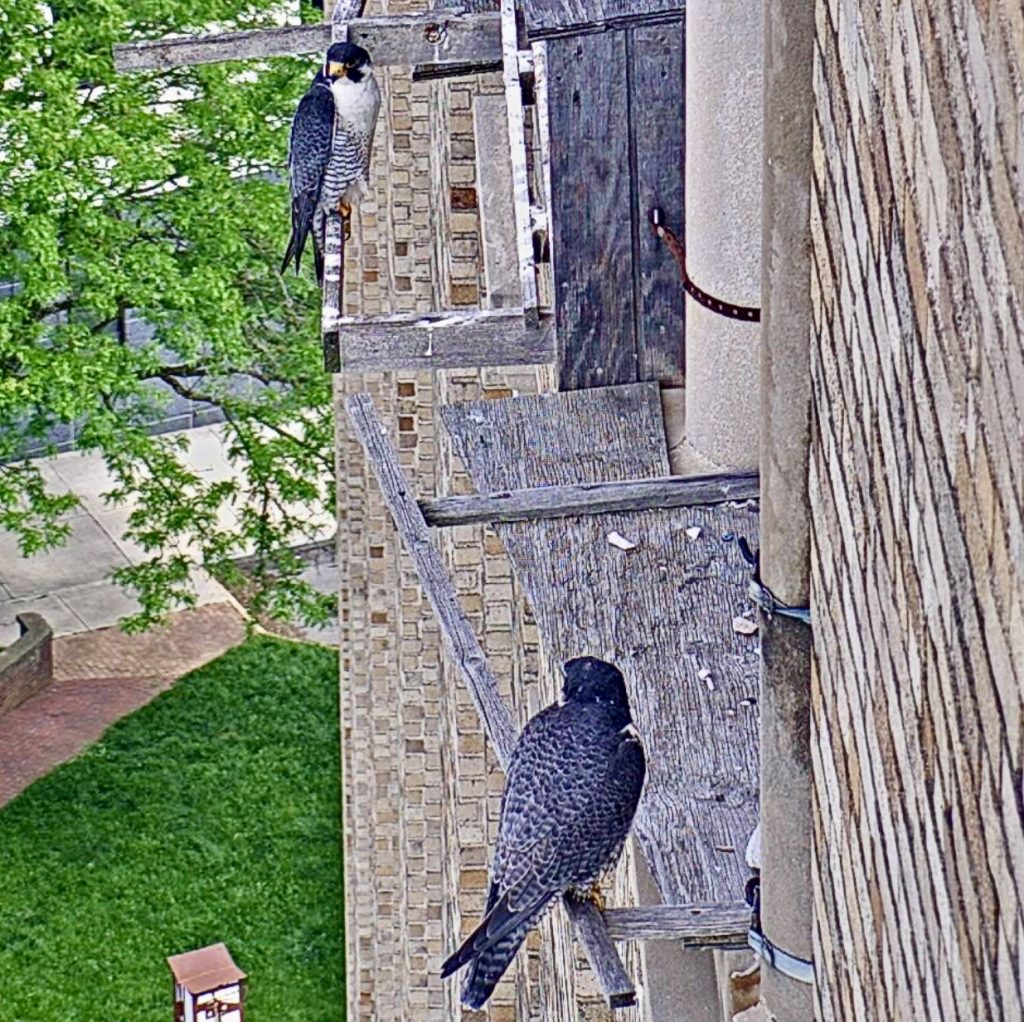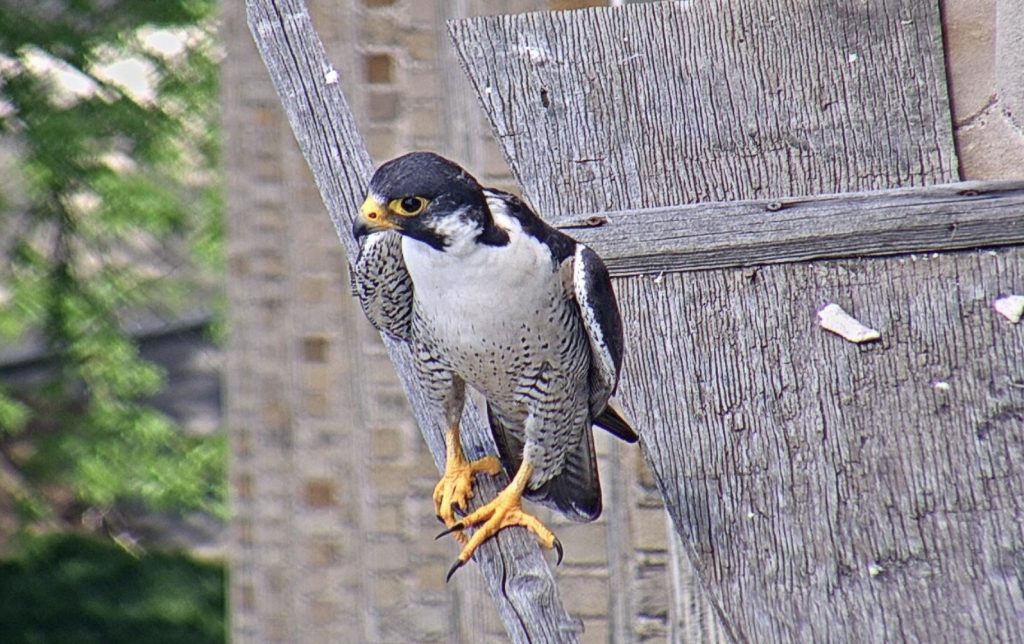Update for Sunday, May 26, 2024
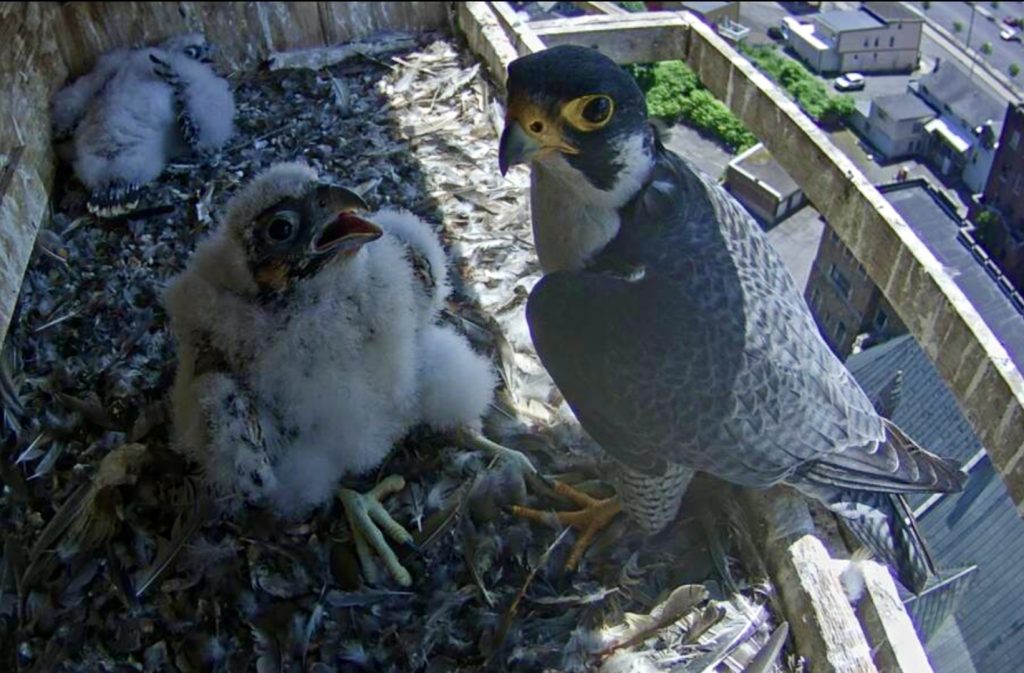
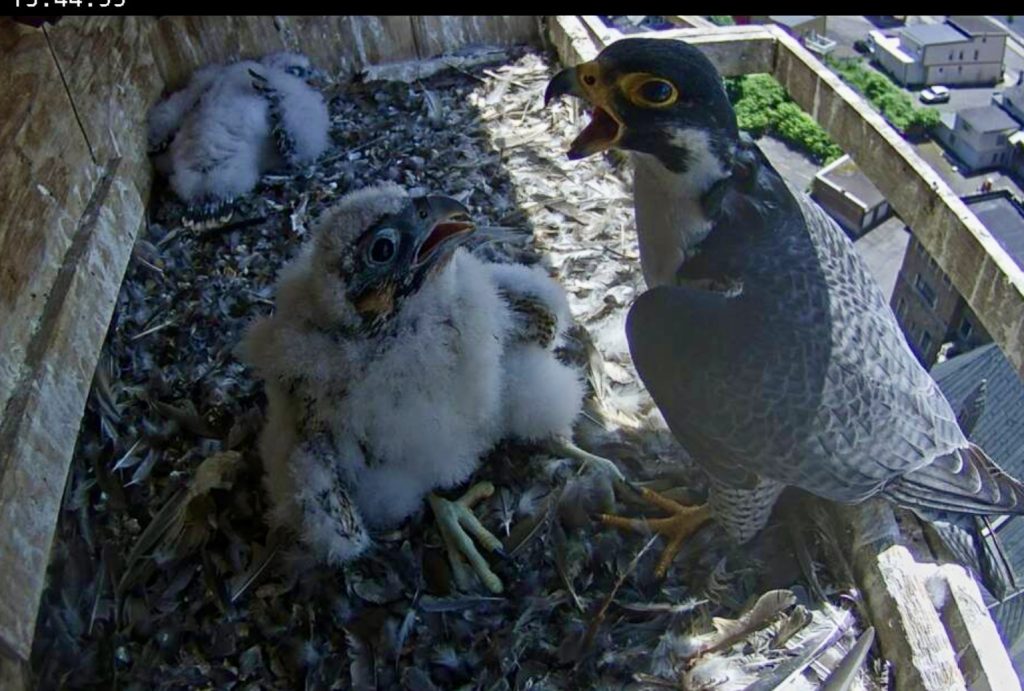
As the days progress, and as the nestling develop, they began to act more like young Peregrines and less like defenseless chicks. Interactions between sibling Peregrine Falcons in the nest are a blend of competition and cooperation, crucial for their development and survival. From hatching, these young birds engage in behaviors reflecting their struggle for resources and family dynamics. Competition for food is a prominent interaction; when a parent brings prey, the nestlings beg vigorously, displaying animated movements and loud calls. Dominant and assertive chicks often secure more food, creating a pecking order within the nest. This hierarchy helps more dominate chicks get the lion’s share of food, although lower ranked chicks rarely suffer from malnutrition since Peregrine parents often provide an overabundance of prey. Beyond food competition, sibling interactions significantly influence the physical and social development of young falcons. As they grow, they engage in play-fighting, including mock attacks, pecking, stealing food from each other, and grappling, which are essential for honing hunting and defensive skills. These activities develop their strength, coordination, and agility, vital for survival once they leave the nest. Additionally, cooperative behaviors such as wing-flapping practice and preening strengthen social bonds and prepare the young falcons for collaborative hunting and survival in the wild. These interactions equip the young birds with the necessary skills and social acumen to thrive as independent predators.
